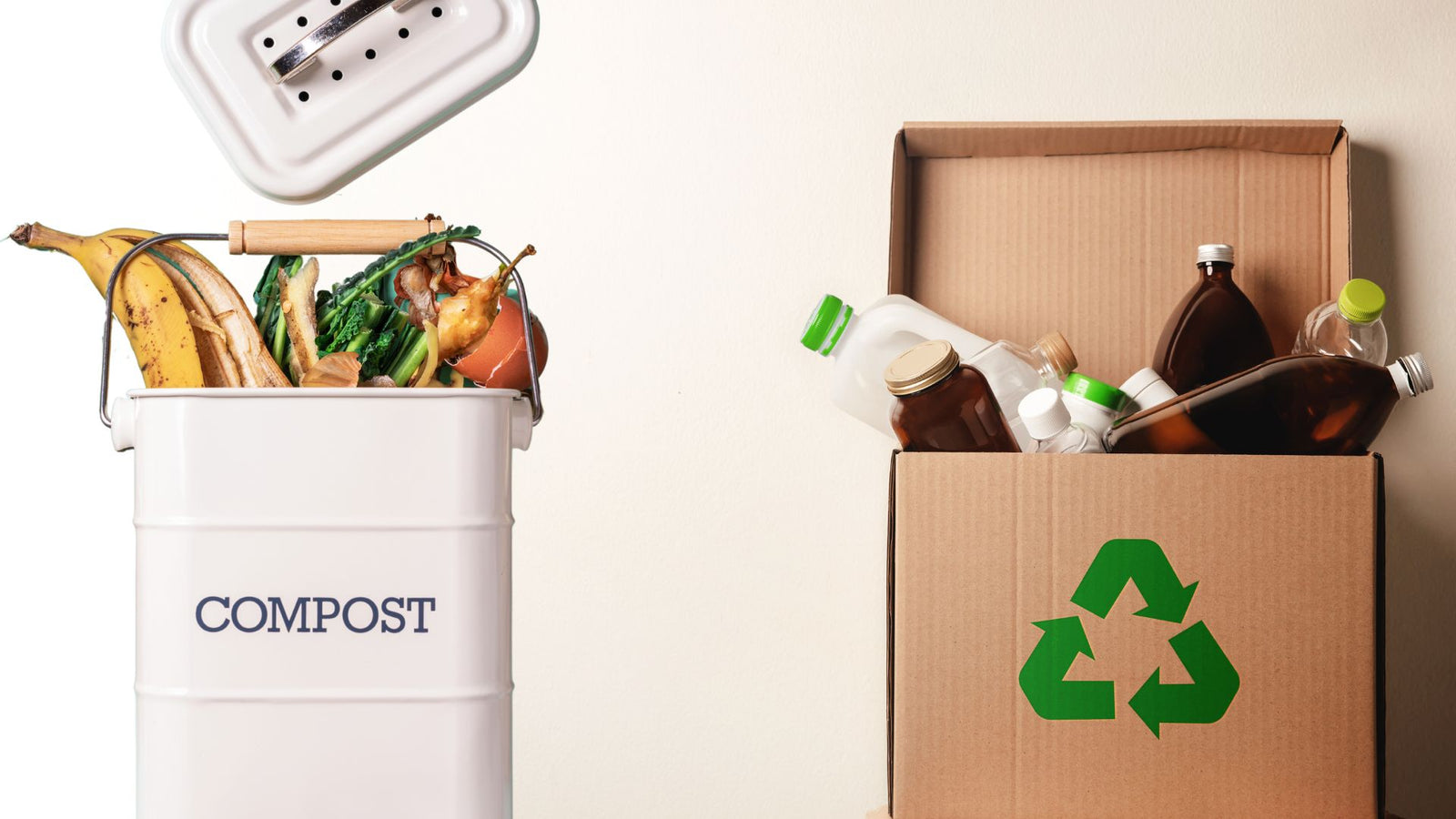In our journey towards a more sustainable future, recycling has long been championed as a key practice to reduce waste and conserve resources. However, there's another eco-friendly contender gaining attention for its significant environmental benefits: composting. Let's explore the differences between composting and recycling, and why composting might just hold the edge when it comes to enhancing sustainability.
What is Composting?
Composting is a natural process where organic materials, such as food scraps, yard waste, and compostable products like those from EQUO, are decomposed by microorganisms in a controlled environment. This process breaks down the materials into nutrient-rich soil called compost, which can be used to enrich soil in gardens, farms, and landscaping.

What is Recycling?
Recycling involves collecting and processing materials (such as paper, plastics, metals, and glass) that would otherwise be thrown away as trash. These materials are then transformed into new products to conserve raw materials, reduce energy consumption, and decrease greenhouse gas emissions associated with production processes.

Closing the Nutrient Loop
Composting stands out for its ability to close the nutrient cycle effectively. Organic materials, such as food scraps and compostable products like those from EQUO, break down naturally into nutrient-rich soil when composted. This soil can then be used to nourish plants, completing a sustainable loop where waste becomes a valuable resource. In contrast, recycling involves processing materials to manufacture new products, which requires energy and resources.
Mitigating Greenhouse Gas Emissions
One of the most compelling advantages of composting is its role in reducing greenhouse gas emissions. When organic waste decomposes in landfills without access to oxygen, it produces methane—a potent greenhouse gas. Composting, however, creates an oxygen-rich environment that promotes aerobic decomposition, significantly minimizing methane emissions. This proactive approach helps mitigate climate change impacts associated with organic waste disposal.

Soil Health and Fertility
Compost acts as a natural soil conditioner, enhancing its structure, improving moisture retention, and fostering optimal conditions for plant growth. The nutrients derived from compost, including those found in everyday items like fruit peels and coffee grounds, contribute directly to soil health and fertility. In contrast, while recycling conserves raw materials and reduces waste, it does not provide the same direct benefits to soil quality.
Community and Local Impact
Composting can be practiced on various scales, from individual households to community gardens and urban farms. This decentralized approach reduces the need for waste transportation and fosters community engagement in sustainable practices. It empowers individuals to actively participate in environmental stewardship, promoting a sense of collective responsibility towards our planet.

Conclusion
Both composting and recycling play crucial roles in sustainable waste management strategies. However, composting offers unique advantages such as closing the nutrient loop, reducing methane emissions, improving soil health, and strengthening community ties. Whether you're new to composting or looking to enhance your current recycling efforts, exploring composting can significantly contribute to a more sustainable lifestyle and a healthier planet.
>>> For those interested in starting composting at home, check out this comprehensive guide: Easy Homemade Composting of Organic Waste. Let's continue to make informed choices that support the health of our environment and future generations.

